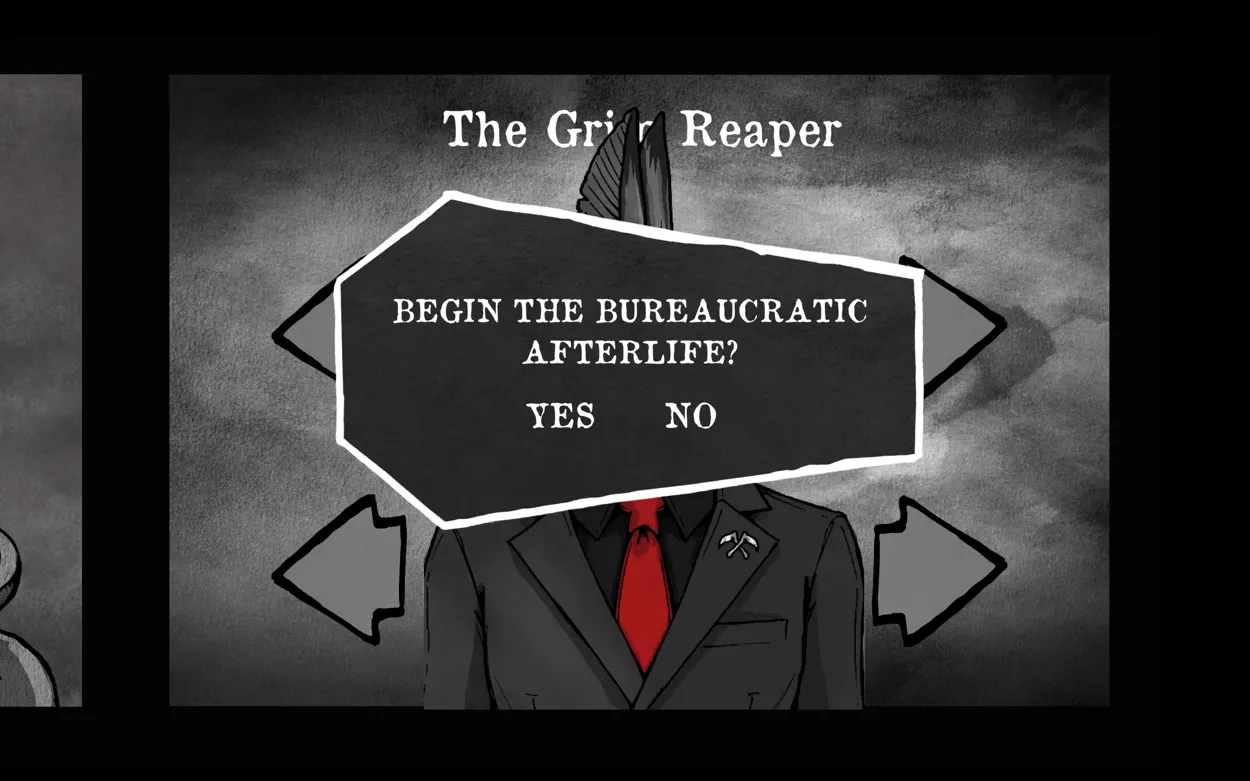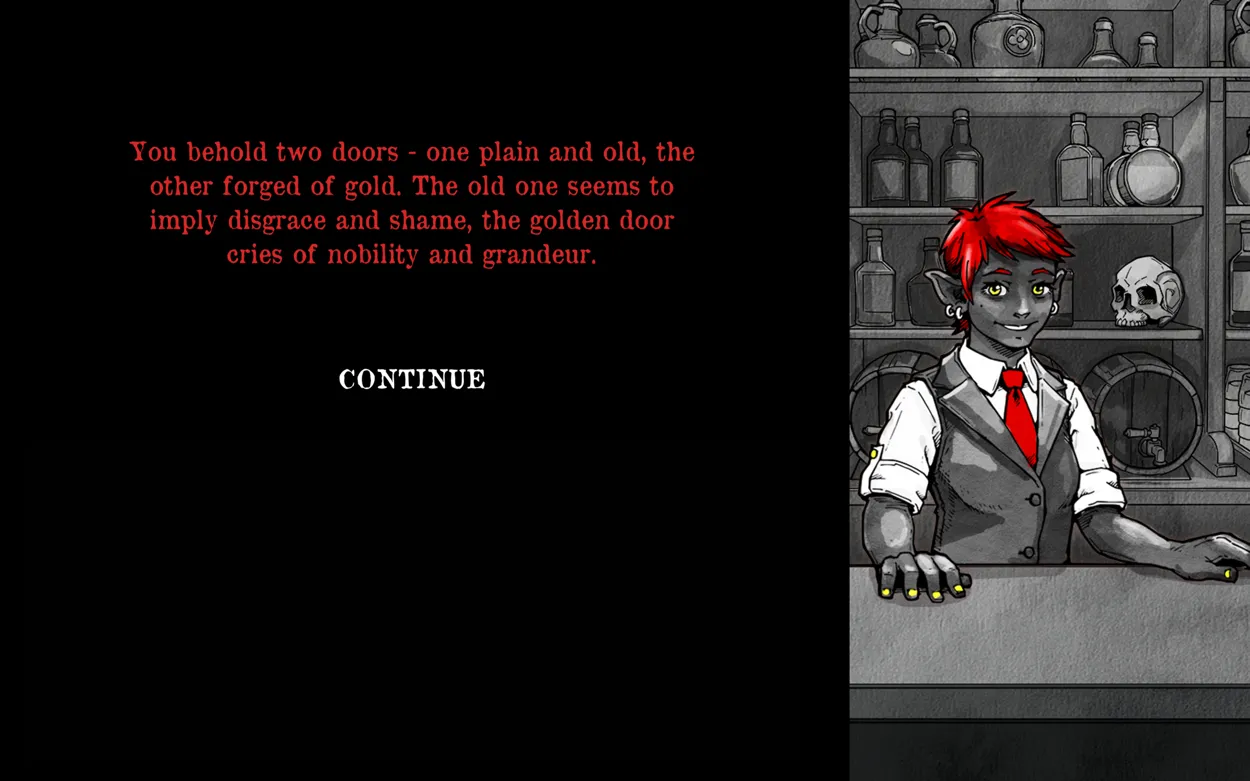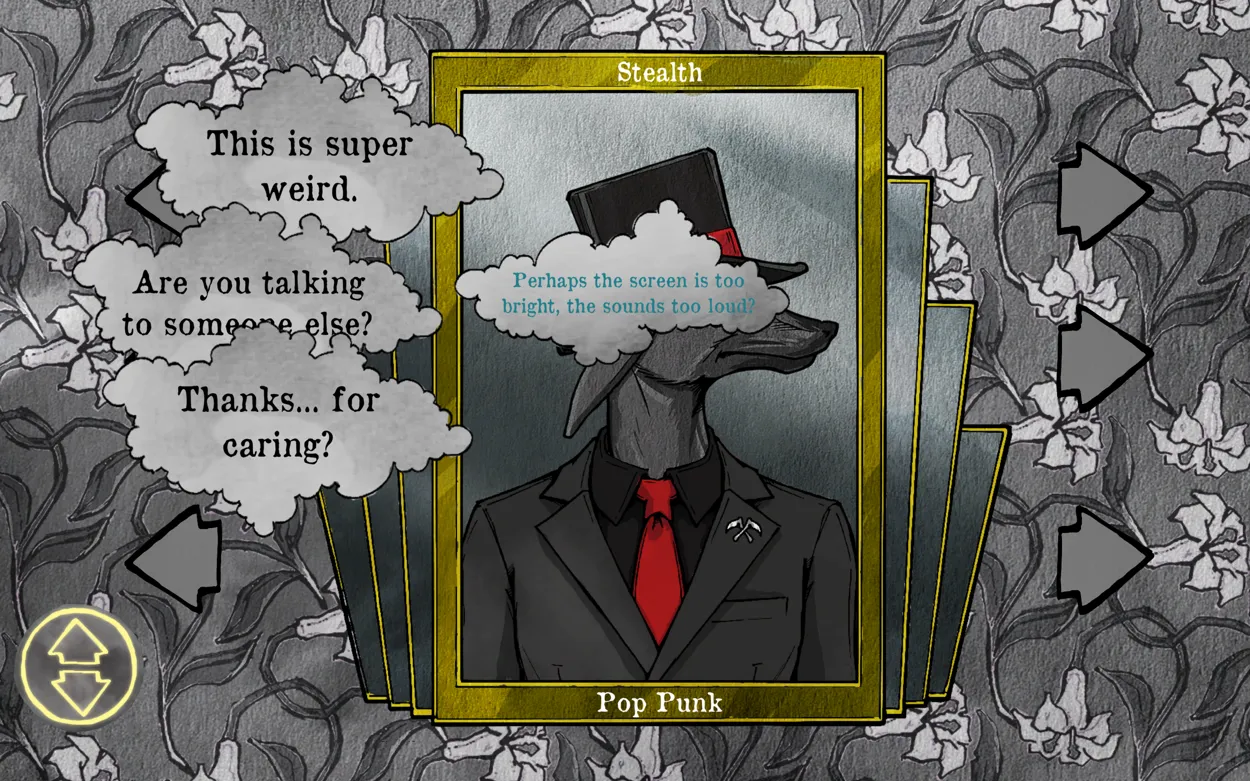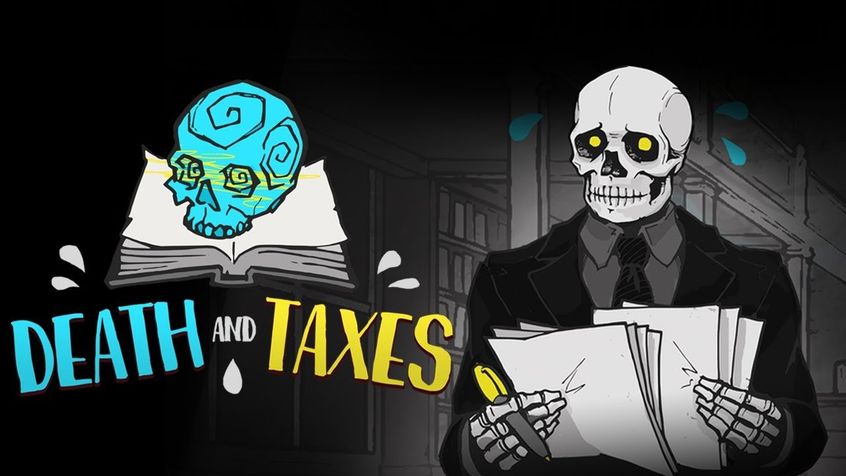Death And Taxes
Death is kind of funny, if you think about it. In a world where each person’s lived experience is entirely unique, and where not one of us can ever know what it is to be someone else, there is one common experience each and every living entity has. Each of us, no matter who we are or what shape our lives have taken, will die. Everybody dies . It’s the great unifier, and yet, in many cultures, as much as possible is done to stave it off. In many cultures, it becomes a negative thing, the worst thing that can happen, even if we are promised eternity or reward or some continuation on the other side. There is that sense that life should be lived for as long as possible, and death is a spooky beast.
I appreciate games like Before Your Eyes , then, for exploring death in a positive light. In that game, death is a release, a friend to be welcomed. It’s a sweet conception of death, and one that I think many can recognise, particularly those who have struggled with terminal illness. Death and Taxes is another death-positive game, albeit one taking a very different approach to why death is less something to be feared, and more something to be accepted and perhaps, when appropriate, embraced.
 This is hell. I am in hell.
This is hell. I am in hell.
Death and Taxes is a narrative management game. You play as a Grim Reaper, working for Fate in the Grim Office to try and maintain balance in the world by pronouncing fates and deciding which humans live and die on any particular day. Throughout your tenure in the Grim Office, you also receive instructions of how many humans and what types of humans need to die, though of course, the interpretation of these instructions is left entirely to your discretion. As the instructions become more and more bizarre, the decision of what to do and whether to obey looms larger and larger for your little Reaper.
Mechanically, then, Death and Taxes plays not dissimilarly to Papers, Please (and indeed, the game references Papers, Please directly). The crux of the game involves finding humanity in bureaucracy, and finding ways to be decent within a fundamental indecent system. Death and Taxes does, however, lean more into crafting a larger world for the bureaucracy and with it, a greater narrative of characters to meet, stories to engage with, and conversations to be had.
 Some would argue that the game is peopled with these characters so we can experience their emotions.
Some would argue that the game is peopled with these characters so we can experience their emotions.
The core of Death and Taxes, though, lies in its sense of humour and the levity with which it approaches the ultimate fate of humanity. The characters quip to one another, gripe about the banality of bureaucracy, and make friends with their fellow grim reapers. Each reaper we meet gets humanised with dialogue that further fills in the absurd familiarity of this place. Though there is always something inherently ridiculous about a death bureaucracy, that it functions like any other office job makes it oddly comforting.
It’s this comfort combined with the sense of humour that makes Death and Taxes a nice, cozy narrative. In the world of Death and Taxes, the Grim Reaper cares about the world and makes decisions that have a reason behind them, even if that reason is sometimes misinformed. There is a structure behind everything, and in that structure, there is meaning and care.
 /sob uh-huh
/sob uh-huh
The puzzle of Death and Taxes is in understanding how to craft a balance between obligation and morality, and how to mask morality behind a front that poses as a dutiful worker. It is, in some ways, the perfect office job simulator, capturing less the job itself, and more the turmoil of those working within it. This, coupled with the fact that the player has the opportunity to try again in another time, another space , gives a catharsis for those who don’t necessarily fit within the confines of corporate culture. It provides a different sort of escapism, one where the drudgery of an office job holds some meaning, and in understanding that meaning, we perform it well.
While Death and Taxes is clearly inspired by Papers, Please, it doesn’t necessarily feel like it holds the same appeal. Instead, I found it more akin to Beholder 2 , where the narrative is one of operating within an opaque system, and trying to maintain one’s sense of self despite it. Where Death and Taxes truly succeeds, though, is in how wholesome and welcoming it makes that struggle seem. Everyone in the Grim Office is in this struggle together, and everyone is rooting for their fellows to succeed. Death, it seems, truly is a unifier.
Developer: Placeholder Gameworks
Genre: Simulation, Narrative, Management
Year: 2020
Country: Estonia
Language: English
Play Time: 3-6 Hours
Youtube: https://youtu.be/48SML_eF-cM
